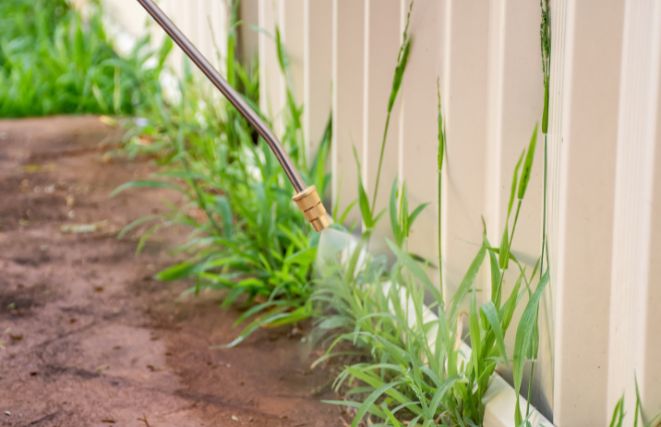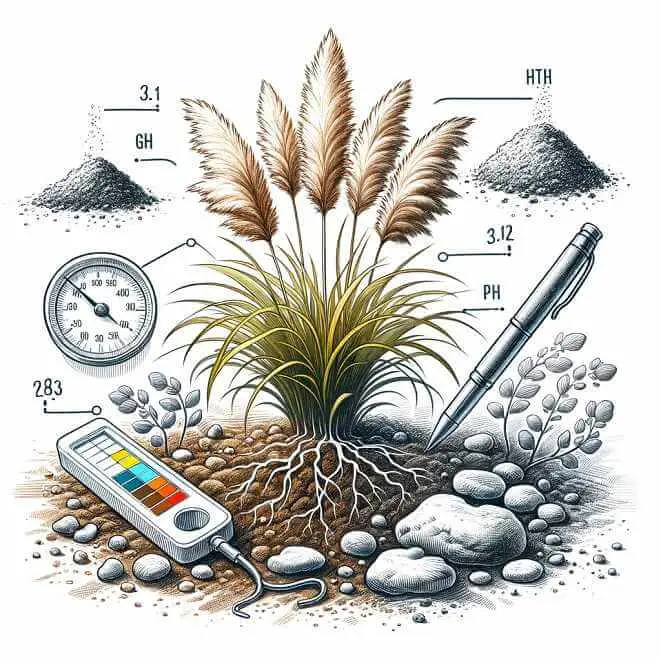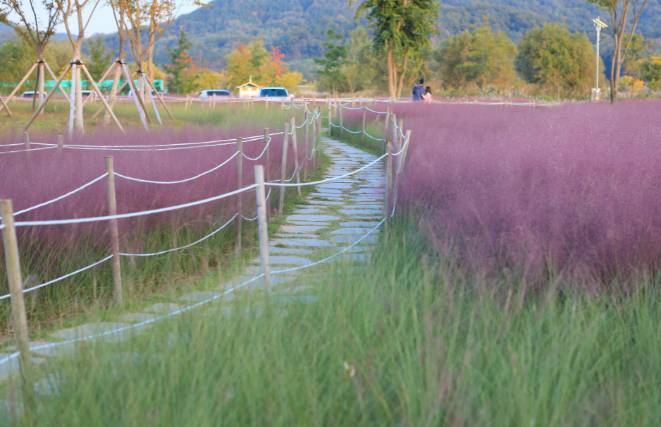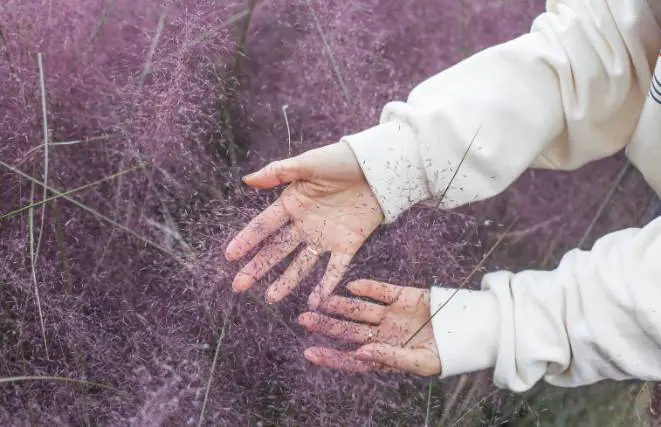As a beginner gardener or a DIY enthusiast, nothing can be more frustrating than having weeds overrun your carefully tended lawn or garden beds. Weeds are tenacious invaders that can choke the life out of your plants and undermine your efforts to create a beautiful outdoor space. In the quest to reclaim our gardens, two common contenders often come to mind: bleach and Roundup. In this article, we’ll delve into the pros and cons of these weed-killing powerhouses, explore their effectiveness, consider their impact on soil health, and determine which one reigns supreme. So, let’s dive in and unravel the mystery of bleach vs Roundup for weeds!
Does Bleach Work to Kill Weeds?
When it comes to battling weeds, bleach might seem like a handy solution hiding in your laundry room or cleaning supplies. Bleach contains sodium hypochlorite, a potent chemical compound known for its ability to disinfect and whiten. While bleach can indeed kill weeds, its effectiveness is somewhat limited. Bleach primarily works by desiccating the foliage of the weed, essentially drying it out. However, it doesn’t penetrate deep into the roots, meaning the weed may regrow from the underground rhizomes or remaining root fragments.
Does Bleach Harm Soil?
One crucial consideration for any gardener is the impact of weed killers on soil health. Bleach, due to its high pH and harsh chemical nature, can harm the soil ecosystem. It disrupts the balance of beneficial microorganisms and may lead to long-term soil degradation. Additionally, bleach is non-selective, meaning it kills not only weeds but also desirable plants it comes into contact with. This makes it unsuitable for precise weed control in a garden setting.
Is Bleach a Better Weed Killer Than Roundup?
While bleach has some weed-killing properties, it falls short when compared to Roundup, a widely used herbicide. Roundup, also known by its active ingredient glyphosate, is designed specifically for effective weed control. It is a systemic herbicide, meaning it is absorbed by the weed’s leaves and travels throughout the plant, attacking the root system and preventing regrowth. This comprehensive approach makes Roundup a better choice for long-term weed eradication.

In terms of effectiveness, Roundup has been extensively tested and proven to be highly successful in eliminating a wide range of weed species. It targets both annual and perennial weeds, including stubborn varieties like dandelions, bindweed, and crabgrass. This makes Roundup a reliable ally in the ongoing battle against weeds in your garden.
Why is Roundup More Effective than Bleach?
The secret behind Roundup’s effectiveness lies in its mode of action. Glyphosate, the active ingredient in Roundup, inhibits an essential enzyme in plants that is responsible for growth. By disrupting this enzyme, Roundup effectively halts the growth of weeds, leading to their eventual demise. Unlike bleach, Roundup targets the entire weed, including the root system, ensuring that the problem is eliminated at its source.
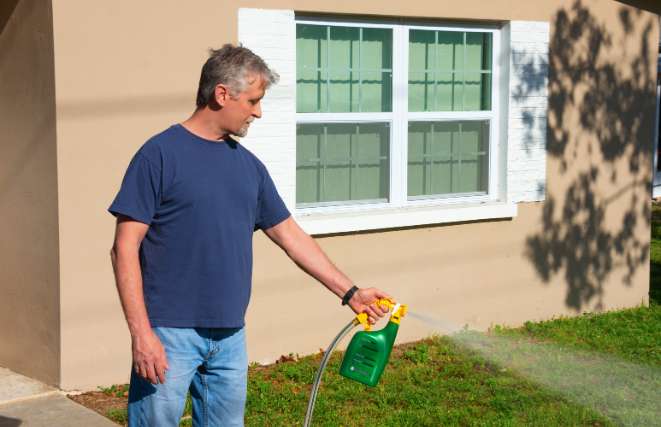
Furthermore, Roundup is designed to be selective, meaning it primarily affects plants with the enzyme targeted by glyphosate. This allows Roundup to effectively control weeds while minimizing harm to desirable plants. However, it is important to follow label instructions and avoid spraying Roundup directly on desirable plants to prevent any potential damage.
Bleach vs Roundup for Weeds
Here’s a comparison table highlighting the key differences between Bleach and Roundup as weed killers:
| Bleach | Roundup | |
|---|---|---|
| Effectiveness | Limited effectiveness, primarily drying out foliage | Highly effective, systemic action targeting roots |
| Long-Term Control | Temporary solution, potential regrowth from roots | Provides long-term control, inhibits regrowth |
| Impact on Soil | Can harm beneficial microorganisms in the soil | Minimal impact on soil health when used as directed |
| Selective Action | Non-selective, may harm desirable plants | Selective action, primarily affects targeted weeds |
| Weed Types | Effective against shallow-rooted annual weeds | Effective against a wide range of annual and perennial weeds |
| Application | Direct application to weeds | Spray application targeting foliage |
| Safety | Handle with care, potential health hazards if misused | Follow safety guidelines, use protective measures as directed |
| Environmental Impact | May have negative environmental effects | Considered relatively safe when used appropriately |
| Availability | Readily available household product | Commercially available herbicide |
Please note that while bleach and Roundup are compared in this table, it is important to use any weed killer responsibly, following label instructions and considering environmental impact.
What Happens When You Mix Roundup and Bleach?
As with any chemical combination, mixing Roundup and bleach is strongly discouraged. The interaction between these two substances can lead to dangerous chemical reactions and the formation of toxic fumes. Combining the two could not only render them ineffective but also pose a serious risk to your health and the environment. Always adhere to proper usage guidelines and avoid mixing different chemicals unless explicitly instructed to do so by experts.
Can You Use Bleach Instead of Roundup to Kill Weeds?
Although bleach can provide a temporary solution for eliminating weeds in non-garden areas, it falls short when compared to Roundup in terms of long-term effectiveness and soil safety. Bleach’s inability to penetrate deep into the roots makes it less reliable for complete eradication, while Roundup’s systemic action ensures a more comprehensive approach to weed control. Therefore, when it comes to battling persistent weeds or maintaining a thriving garden, Roundup remains the preferred choice.
Will Bleach Kill Weeds Between Pavers?
Yes, bleach can kill weeds between pavers. Weeds stubbornly find their way into the smallest of crevices, and the gaps between pavers are no exception. Fortunately, bleach can be effective for killing weeds between pavers, where it is less likely to damage surrounding plants or contaminate the soil. A carefully applied bleach solution can help eradicate these pesky invaders and restore the pristine appearance of your hardscape. However, it’s important to exercise caution and avoid excessive bleach usage, as it can discolor or deteriorate certain types of pavers.
Does Diluted Bleach Kill Weeds?
Yes, diluted bleach can kill certain types of weeds. When bleach is diluted with water, it reduces its potency but can still be effective against shallow-rooted annual weeds. However, it is important to note that diluted bleach is less effective against perennial weeds or those with well-established root systems. Additionally, using diluted bleach as a weed killer should be considered a temporary solution, as it lacks the long-term control capabilities of dedicated herbicides like Roundup.
Always exercise caution and follow safety guidelines when handling and applying bleach.
Will Bleach Kill Weeds in Sidewalk Cracks?
Yes, bleach can effectively kill weeds in sidewalk cracks. When applied directly to the weeds and their root systems, bleach can eliminate them from these narrow spaces. However, it is important to note that bleach may have varying effects on different types of pavement materials. Before applying bleach, it is advisable to test it on a small, inconspicuous area of the sidewalk to ensure it does not cause discoloration or damage. Additionally, exercise caution and follow safety guidelines when handling bleach to protect yourself and the environment.
However, remember that bleach only works on the exposed parts and may not penetrate deep enough to kill the root system completely. For a more comprehensive solution, Roundup is a better choice, ensuring the eradication of weeds from their source.
What kills weeds permanently?
When it comes to killing weeds permanently, using a combination of methods is often necessary for effective long-term control. Here are some approaches that can help in achieving more permanent weed eradication:
- Manual Removal: Pulling weeds by hand, ensuring you remove the entire root system, can be effective for small-scale weed control. It’s important to be thorough to prevent regrowth.
- Mulching: Applying a layer of organic mulch, such as wood chips or straw, around plants and in garden beds can suppress weed growth by blocking sunlight and preventing weed seeds from germinating.
- Herbicides: Selective herbicides, such as those containing glyphosate, can be effective in killing a wide range of weeds. These herbicides target the weed foliage and root system, providing more permanent control. Follow label instructions and use herbicides responsibly.
- Pre-Emergent Herbicides: These herbicides are applied before weed seeds germinate and create a barrier in the soil, preventing weed growth. They are particularly useful for preventing annual weeds from establishing themselves.
- Regular Maintenance: Consistent and proactive weed management is essential for long-term control. Regularly inspect your garden or landscape, remove any emerging weeds, and address weed issues promptly before they have a chance to spread.
It’s important to note that complete eradication of weeds can be challenging, as new weed seeds can always be introduced to your garden through various means. However, by employing a combination of these methods and maintaining a vigilant approach to weed control, you can significantly reduce weed populations and achieve long-lasting results.
Remember to consider the specific needs of your garden or landscape, including the types of weeds you are dealing with, and choose the most appropriate and sustainable weed control methods for your situation.
FAQ – Bleach vs Roundup for weeds
The time it takes for bleach to kill weeds can vary, but typically it may take between 3-7 days. Bleach primarily works by drying out the foliage of the weeds, which can lead to their eventual death. While bleach may show visible effects on the weeds within a few days, it may not completely eliminate the root system of the weeds, allowing for potential regrowth. For more effective and long-lasting weed control, it is recommended to use herbicides that are specifically formulated for weed eradication.
Baking soda, also known as sodium bicarbonate, can be used as a natural weed control method, but its effectiveness in preventing weed growth is limited. While baking soda has some weed-suppressing properties, it is not a reliable long-term solution for weed prevention. Baking soda works by altering the pH level of the soil, creating unfavorable conditions for some weed species. However, its effects are temporary and may not be sufficient to completely prevent weed growth or eliminate existing weeds. Additionally, the use of baking soda as a weed control method should be approached with caution, as excessive application can harm desirable plants and affect soil pH balance. It is advisable to consider other more effective and sustainable weed control methods, such as mulching, manual removal, or selective herbicides, for more reliable and long-lasting results.
Conclusion
In the ultimate battle of bleach vs Roundup for weeds, Roundup emerges as the clear winner for its effectiveness, systemic action, and targeted weed control. While bleach may have some limited uses, it falls short in terms of long-term eradication and potential harm to soil health. As you tend to your garden and tackle those stubborn weeds, choose Roundup for reliable, thorough, and efficient weed control, allowing you to create the garden of your dreams, free from the relentless grip of weeds. Remember, a healthy garden begins with effective weed management, and Roundup is your trusted ally in this perennial struggle. Happy gardening!
Disclaimer: When using any chemical herbicide, always follow the instructions provided by the manufacturer, take necessary precautions, and consider alternative eco-friendly weed control methods when appropriate.

